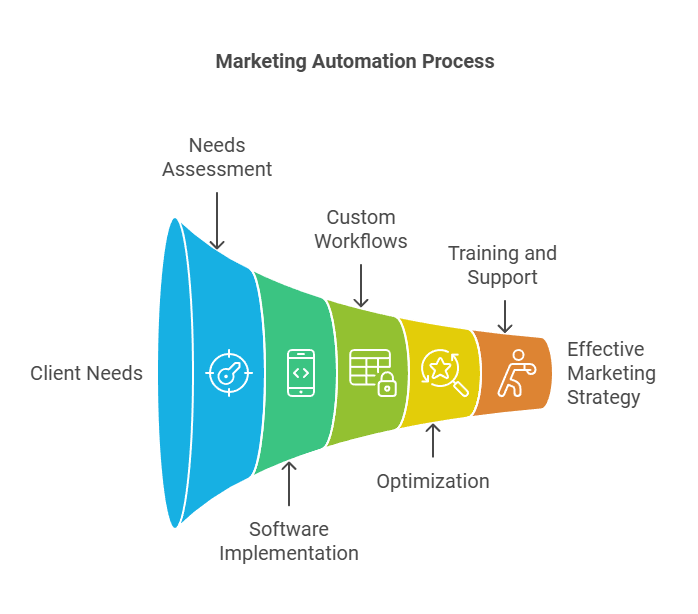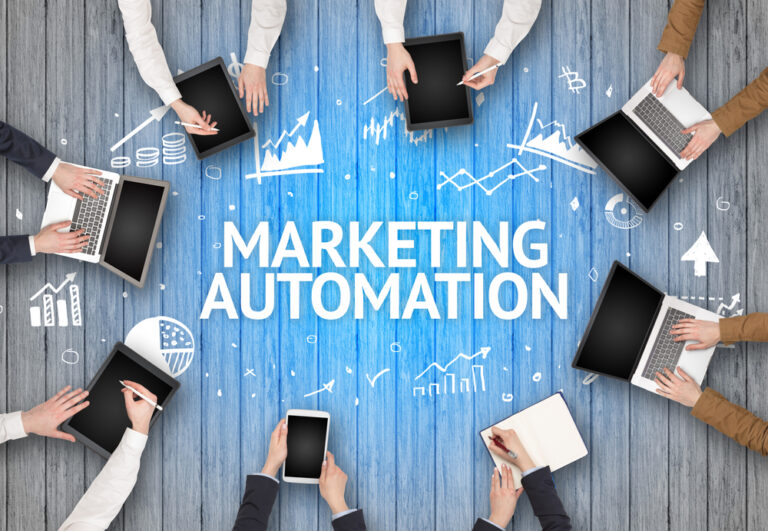
/
RSS Feed
1. Enhanced Efficiency and Productivity
- Automating Repetitive Tasks: By automating routine marketing activities, teams can focus on strategic initiatives that require human creativity and insight.
- Streamlined Workflows: Automation facilitates seamless coordination among marketing, sales, and customer service departments, ensuring consistent messaging and improved collaboration.
2. Improved Lead Management and Conversion
- Lead Scoring: Automation tools assess and rank leads based on their engagement and likelihood to convert, enabling sales teams to prioritize efforts effectively.
- Nurturing Leads: Automated campaigns deliver targeted content to prospects at various stages of the buyer’s journey, fostering relationships and guiding them toward conversion.
3. Personalized Customer Experiences
- Dynamic Content Delivery: Tailoring messages to individual preferences and behaviors enhances customer engagement and satisfaction.
- Behavioral Targeting: Automation systems analyze customer interactions to deliver relevant content, increasing the likelihood of conversion.
4. Data-Driven Decision Making
- Comprehensive Analytics: Marketing automation platforms provide in-depth insights into campaign performance, customer behavior, and ROI, empowering data-driven strategies.
- A/B Testing: Automated tools facilitate testing of different marketing approaches to identify the most effective strategies.
5. Scalability and Growth
- Campaign Scaling: Automation enables businesses to expand marketing efforts without proportionally increasing resources, supporting growth objectives.
- Consistent Customer Engagement: Automated systems ensure timely and relevant communication with a growing customer base, maintaining engagement as the business scales.
6. Enhanced Customer Retention and Loyalty
- Automated Follow-Ups: Timely, personalized follow-up communications help maintain customer relationships and encourage repeat business.
- Loyalty Programs: Automation facilitates the management of customer loyalty programs, rewarding repeat customers and fostering brand loyalty.
7. Cost Reduction and Increased ROI
- Reduced Marketing Overhead: Automation decreases the need for manual intervention, lowering operational costs.
- Improved Resource Allocation: By automating tasks, businesses can allocate resources more efficiently, focusing on high-impact activities that drive ROI.
Implementing Marketing Automation: Best Practices
To maximize the benefits of marketing automation, consider the following best practices:
- Define Clear Objectives: Establish specific goals for what you aim to achieve with automation, such as increasing lead conversion rates or improving customer retention.
- Select the Right Platform: Choose a marketing automation platform that aligns with your business needs and integrates seamlessly with existing systems.
- Develop Quality Content: Create engaging, relevant content tailored to your target audience to enhance the effectiveness of automated campaigns.
- Train Your Team: Ensure that your marketing and sales teams are adequately trained to utilize automation tools effectively.
- Monitor and Optimize: Continuously analyze performance metrics and adjust strategies to improve outcomes.
Marketing automation is a transformative tool that empowers businesses to enhance efficiency, personalize customer interactions, and drive sustainable growth. By implementing automation strategies thoughtfully and adhering to best practices, companies can unlock significant value and maintain a competitive advantage in the dynamic digital marketplace.



